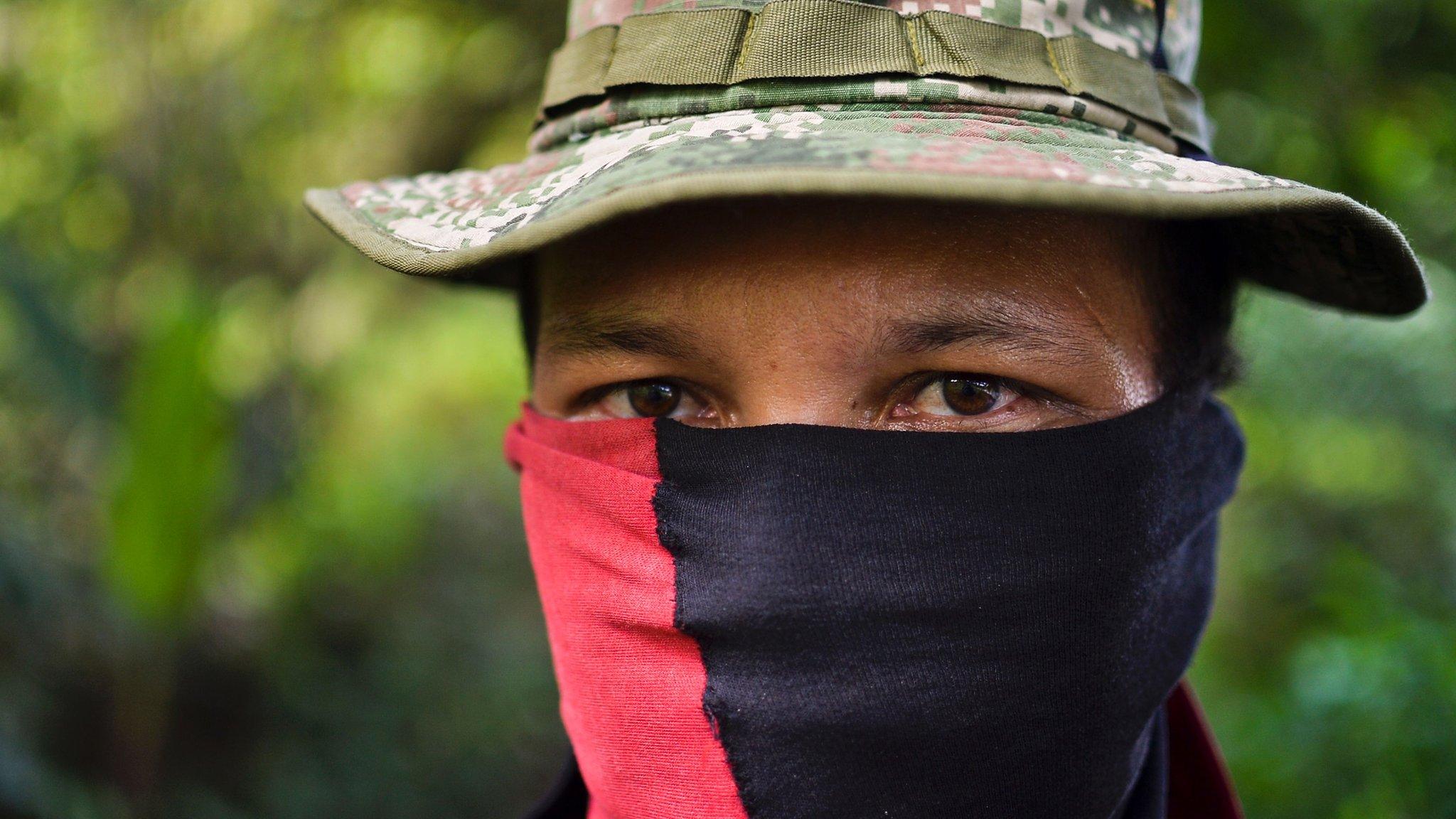Colombia conflict: Seized Dutch journalists still held
- Published
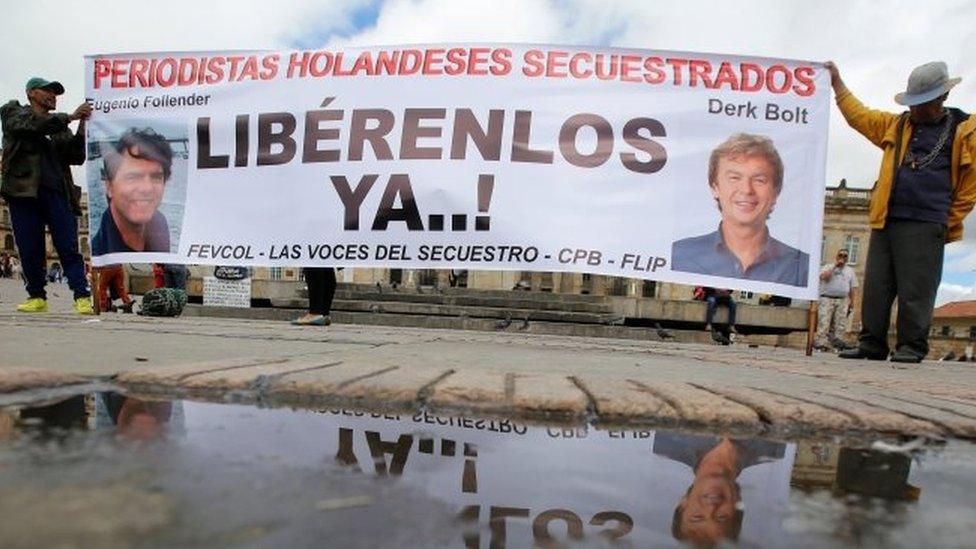
Protests have been held across Colombia this week to demand the release of the two Dutch journalists
Two Dutch journalists seized in Colombia last weekend by ELN rebels have not been released yet, the left-wing group told the BBC.
The ELN earlier said Derk Bolt and Eugenio Follender had been "freed in perfect condition".
The Dutch embassy in Colombia told the BBC it had no information about the reported release.
It is feared the kidnappings could disrupt peace talks the left-wing ELN is holding with the government.
The ELN (National Liberation Army) said earlier on Friday that the journalists had been freed, but it later added that it "couldn't properly corroborate" this.
Mr Bolt and Mr Follender were near El Tarra in the Catatumbo region, near the border with Venezuela, searching for the mother of a Colombian child adopted in the Netherlands.
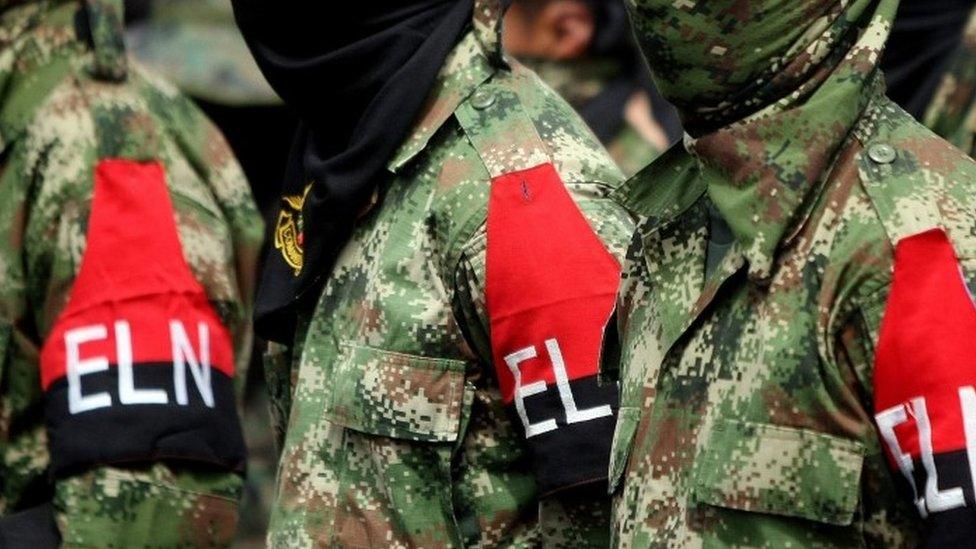
The ELN is the second most important guerrilla group in Colombia after the Farc (16 June 2013)
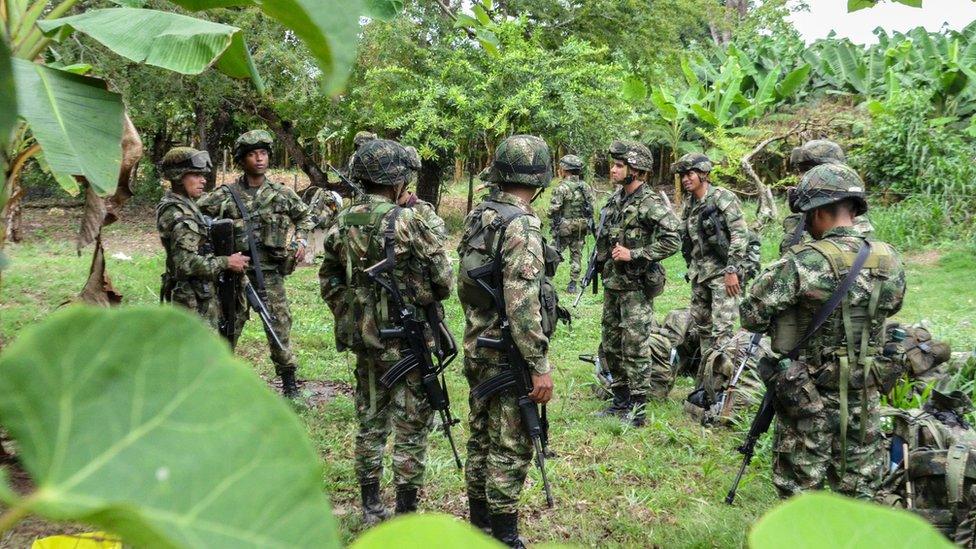
The Colombia army sent specialist forces to search for the missing pair
Last year the ELN kidnapped a Spanish journalist and several Colombians in the same area. All were later released.
The ELN is the second largest left-wing guerrilla group in Colombia, behind the Farc.
The Farc signed a peace deal with the government last November, are coming to the end of a disarmament process and are preparing to enter civilian life. The ELN only started peace talks in February this year.

Analysis: Natalio Cosoy, BBC, Bogota
The fact that the ELN has held these two journalists captive in Catatumbo and insists it would do it again if the same situation arose means the area is effectively out of bounds for reporters and non-locals.
It is not the only Colombian region where an armed group has a level of control that makes it unsafe to visit. The situation is the same in the province of Guaviare, where the dissident 1st Front of the Farc operates. In early March it kidnapped, and has still not released, an official working for the United Nations Office on Drugs and Crime.
These situations put into question the ability of the Colombian state to control territories around the country, even after the Farc guerrillas have retreated into 26 transition zones, where they are completing their disarmament, as agreed in the peace deal they have signed with the government in November 2016.
Without the Farc the huge Colombian security forces apparatus, with around half a million men and women, has more room to control other insurgencies and criminal organisations.
As the Colombian government's High Commissioner for Peace, Sergio Jaramillo, told me a few days ago, referring to all areas like Catatumbo: "They have to improve. There would be no excuse for them not to."
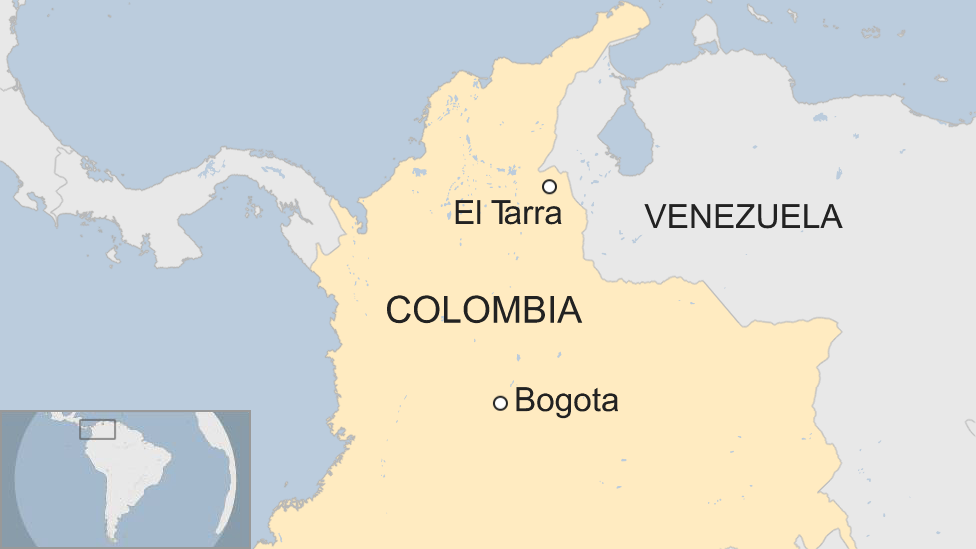
- Published20 June 2017
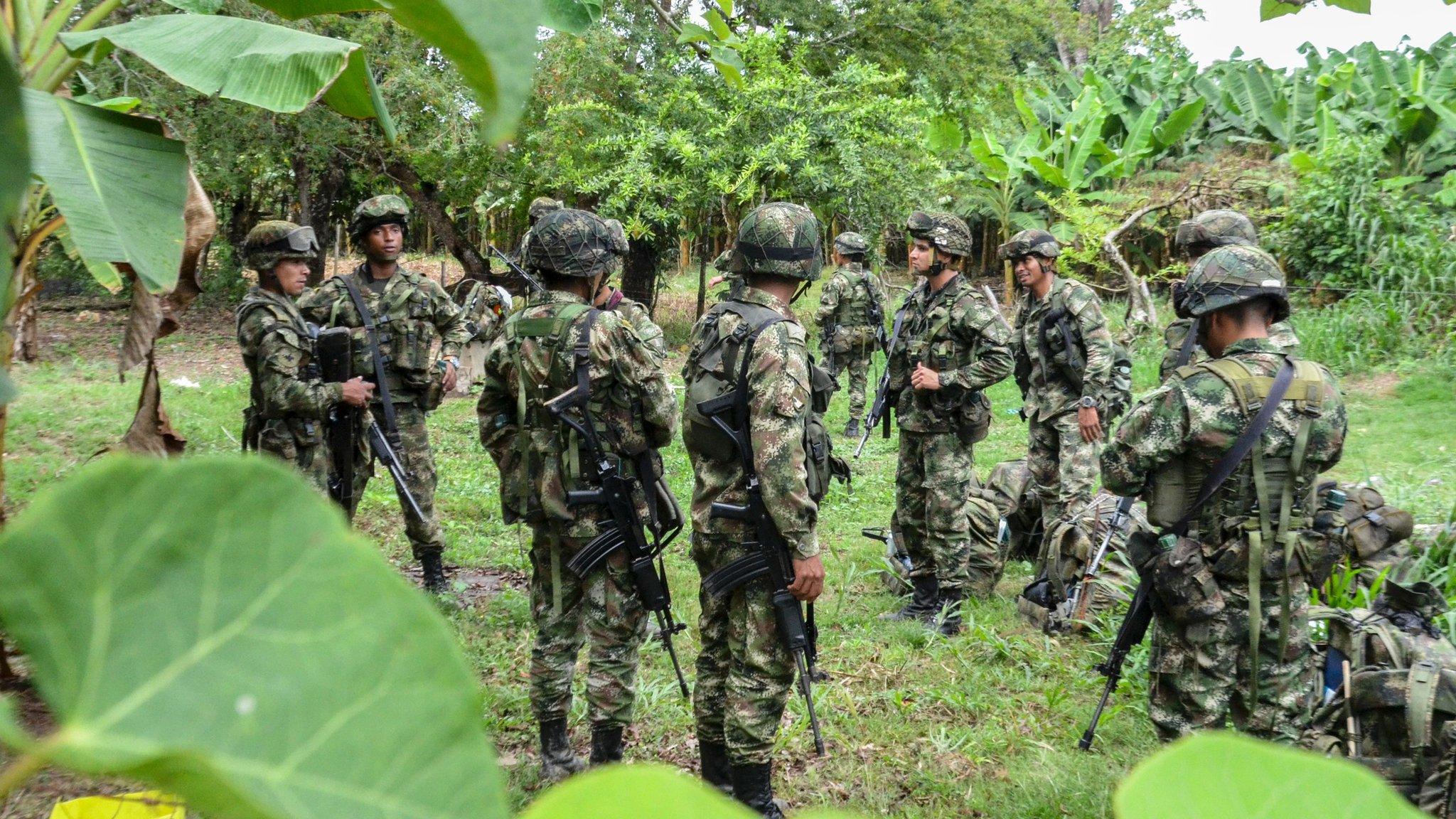
- Published23 April 2017
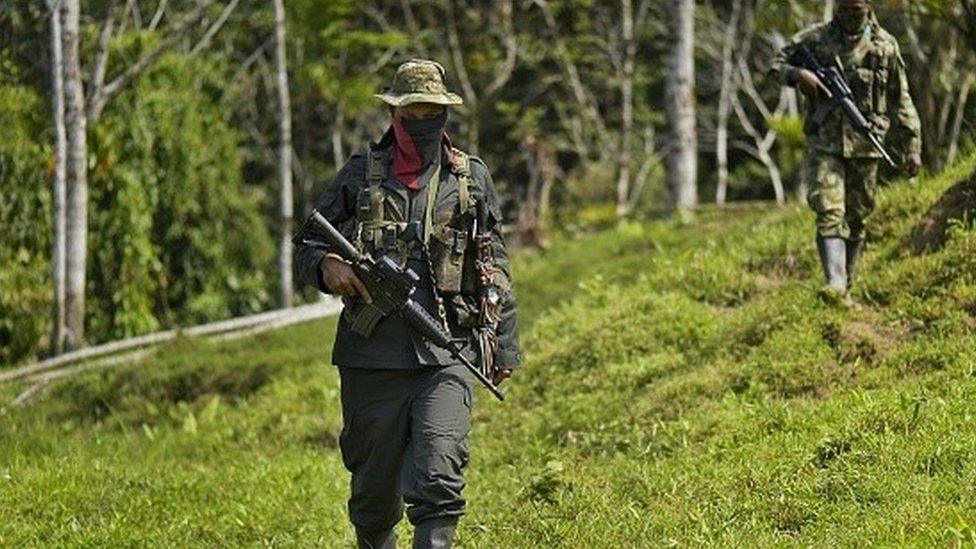
- Published8 February 2017
